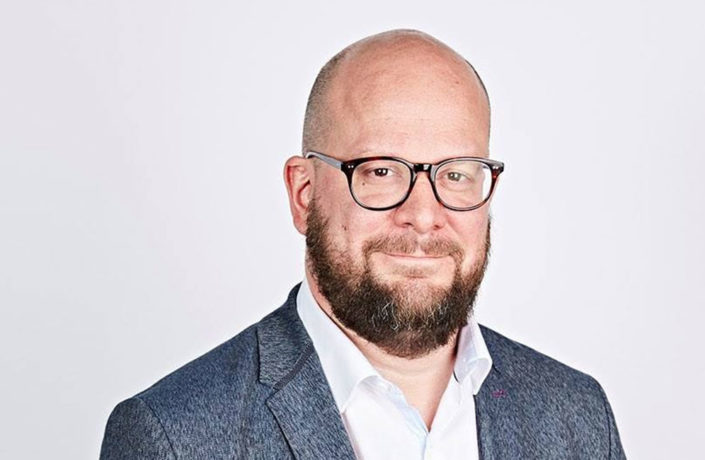 News
News
Doteveryone’s ‘office for responsible tech’ call
Posted on 15th October 2018
A new independent ‘office for responsible technology’ should lead the regulation of the internet for a fairer online future, responsible tech think tank Doteveryone says in a new white paper – saying that the extra clout needed to regulate tech can come from strengthening the powers of existing regulators. Julian Blake reports.
 A “robust and flexible” system of regulation is needed to help create digital products and services that work for the public interest and that safeguard against harm, responsible technology think tank Doteveryone says in a new white paper on tech regulation.
A “robust and flexible” system of regulation is needed to help create digital products and services that work for the public interest and that safeguard against harm, responsible technology think tank Doteveryone says in a new white paper on tech regulation.
“The ability to connect everyone, and everything, comes with a great deal of responsibility,” Doteveryone founder Martha Lane-Fox writes in the paper. “No technology can be responsible for itself – and certainly not one as transformative or fast-moving as the internet.”
In a Medium post last week setting out its proposals, Doteveryone researcher Jacob Ohrvik-Stott called for a new ‘office for responsible technology’ to empower regulators, inform the public and policymakers, and support people seeking redress from “technology-driven harms” by handling complaints fairly.
“The value of building the public’s trust in technology by mitigating digital harms and empowering regulators to allow responsible innovation to flourish is enough to pay this back a hundred times over,” said Ohrvik-Stott.
Doteveryone says there has been a political appetite for regulatory change, including through the government’s new centre for data ethics and innovation – and urges the government to “radically rethink and expand the remit and ambition of the centre to take on the office’s responsibilities”.
The think tank, set up in 2015 by lastminute.com co-founder Lane Fox to help create “a fairer internet for everyone”, says it consulted technologists, regulators, policymakers, consumer bodies, civil society groups, academics, ethicists and more during its ‘regulating for responsible technology’ programme.
It reviewed the landscape for digital regulation in the UK, and in May published a green paper on the issue. Following consultation, Doteveryone now concedes that the recommendation in its new paper “are a significant departure from our initial premise of a single command-and-control regulator for all of the internet. We came to realise that idea couldn’t work.
“In reviewing the regulatory landscape, and during the course of our consultations, we revealed that actually, all regulators are now grappling with the impacts of digital technologies in their sectors and therefore all parts of the regulatory ecosystem need to be empowered to positively shape digital technologies,” says Ohrvik-Stott.
Doteveryone says the new office would be a “hub of industry-standard expertise” could “build up the digital capacities of regulators across the board”. This could be done by scrutinising regulator remit, collaborating with regulators to develop sector-specific solutions, and leading foresight activities to alert regulators to emerging risks and opportunities.
The think tank says it has heard repeated pleas for “a more rigorous evidence-base around online harms”, to help both public and politicians. Its research had found 92% of the public wanted a single place where they could find out about their rights online, but only 28% knew where to go.
The new office would conduct research into the benefits and harms of technologies, and provide clear, accessible guidance around online issues.
 It would support people seeking redress for “technology-driven harms” by helping establish best practice for handling complaints, providing backstop mediation when internal processes fail. This would “encompass collective redress in instances where issues have affected large groups of people, for example where an algorithm has discriminated against people of a certain gender or ethnicity”, says Doteveryone.
It would support people seeking redress for “technology-driven harms” by helping establish best practice for handling complaints, providing backstop mediation when internal processes fail. This would “encompass collective redress in instances where issues have affected large groups of people, for example where an algorithm has discriminated against people of a certain gender or ethnicity”, says Doteveryone.
And it would share insights to flag emerging issues and inform regulatory practice.
Labour set out its proposals for a single regulator in a speech by shadow science and innovation minister Chi Onwurah at this month’s Power & Responsibility summit, organised by DigitalAgenda.
On 31 January, Doteveryone hosts Responsible Tech 2019, “an event to create a fairer future”, at London’s British Library. Speakers include Doteveryone founder Martha Lane Fox, culture secretary Jeremy Wright, Bulb chief executive Hayden Wood and Sarah Gold of Projects by IF. Places are limited – sign up before 21 November for discounted tickets.
Push to keep society ‘in the loop’
Internet ‘needs independent regulator’
Five ‘blind spots’ to digital understanding
Agenda Setters interview with Rachel Coldicutt: Doteveryone’s good internet fight

